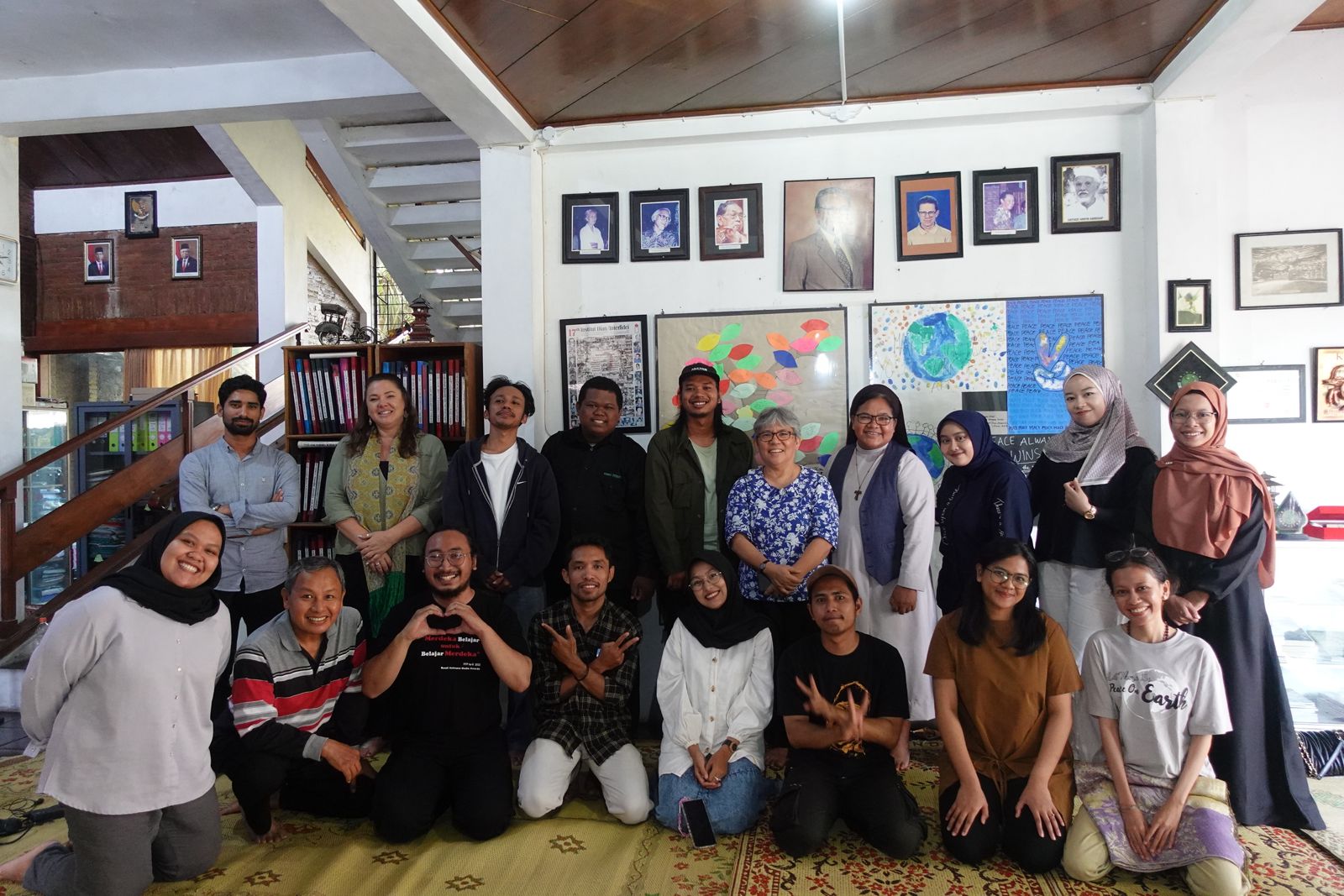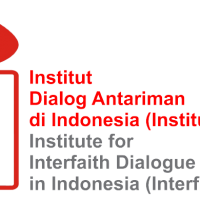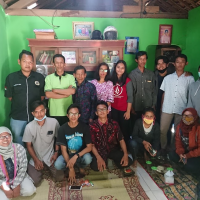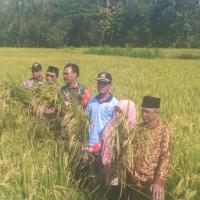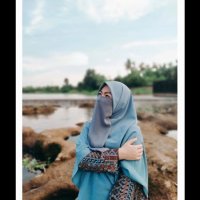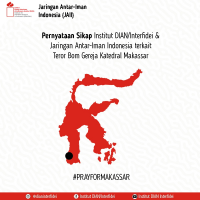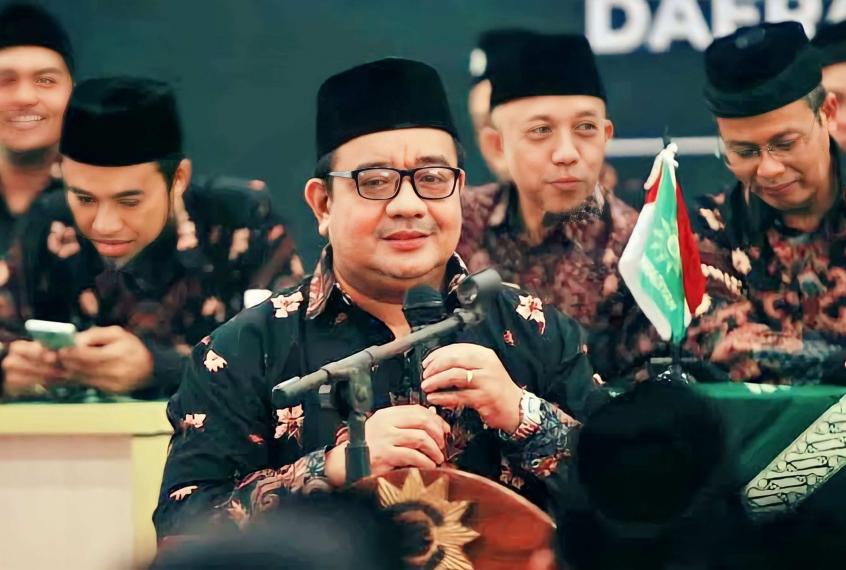Could Youth Bridge the Divide? Interfidei's Experience in Interfaith Dialogue
Elga Sarapung welcomed me warmly as I walked into the Institute for Inter-Faith Dialogue in Indonesia (Interfidei) office on Wednesday, 13th December 2023.
"How's it going?" she asked, her eyes twinkling.
After a brief chat, she gave me a tour of the office, pointing out some interesting archive sheets on the walls.
Photos covered the walls, like a who's who of Indonesian religious leaders. There was Ibu Gedong Bagoes Oka, a Balinese Hindu figure who was tight with Gus Dur, Sukarno, and even Romo Mangun.
And without a doubt, a picture of Gus Dur himself couldn't be missed.
The walls were also lined with pics of the folks who started Interfidei, like the late Dr. Th. Sumartana, a cultural scholar, the late Rev. Eka Darmaputra, Ph.D., Daniel Dhakidae, Ph.D., and Dr. Djohan Effendi, alongside other important figures from different faiths.
And you get this, they even had a photo of KH. Sayyed Arifin Assagaf from the Yayasan Alkhairaat. It was like a religious hall of fame in that space.
Interfidei or in Bahasa Institut Dialog Antar Iman di Indonesia (Institut DIAN) was founded on 20 December 1991 by a group of brainy theologians and thinkers in Yogyakarta and started as a humble forum.
It was a space where people could share their religious beliefs, ponder the complexities of diversity (or pluralism as the cool kids call it), and connect their thoughts to real-life experiences.
I was quite blessed to visit Interfidei and chat with Elga Sarapung, the director.
The place was buzzing with creative energy, with thought-provoking displays by young artists lining the walls. And the best part was the book repository and bookshop.
We finally finished exploring the cool stuff, just in time to catch the next session.
We had a fantastic session with Jenna Aubrey, a Bachelor of Global Security specializing in Terrorism and Counterterrorism Studies at Murdoch University, who is interning at Interfidei, and we discussed Bridging All Communities Through Youth Experience with Fari Hakim as a host, one of their brilliant research minds.
Jenna dives deep into Interfidei with religious visits, school outreach, English lessons, and website translation – six weeks packed with diverse experiences.
Jenna's religious visits were a whirlwind tour of diverse faiths.
She dipped her toes into the vibrant world of Aisiyah, Saptodarmo, Fatayat NU, and communities of Hindu, Buddhist, and Shia.
She wasn't just a passive observer; she dived right in, joining a Buddhist event where she learned to chant prayers and even participating in a Tilem ceremony (rerahinan) from beginning to end in the Hindu community.
Jenna as well participated in sujud (prostration) at Saptodarmo. She said that the most special moment for her was when she visited Aisiyah and Fatayat NU, where she got to experience the perspective of women in religious communities.
This was an experience that she had never had before in Australia, where religion is a completely private sphere.
In the middle of the dialogue, Wali, a young man from Pakistan, asked an interesting question: "When we talk about terrorism, why does it always seem to be associated with a particular religion?"
Jenna argued that terrorism could be motivated by religious interpretation, "Terrorism has a religious aspect, or religiously motivated; otherwise, it's just a crime under the guise."
However, she criticized the perception of terrorism as being biased and white supremacist. This could lead to misunderstandings.
In some cases, groups may have no other choice but to fight for their freedom or their homeland from oppression. In these cases, the label of terrorism may be political.
Jenna also visited two schools during her internship, SMA BOPKRI 2 Yogyakarta and SMA PIRI 1 Yogyakarta. She chose to discuss social media, hate speech, and cyberbullying with the students.
Hanifah, a participant in the conversation, asked an interesting question that got us thinking.
She asked, "Are there any social, cultural, or religious aspects that contribute to bullying and impact the mental well-being of students?"
Jenna responded that she had not delved into the issue in her studies. The question was then answered by Zera. According to Zera, there are indeed religious interpretations that could trigger cyberbullying.
Religious interpretations can sometimes shape the values that young people hold, but they also have their unique perspectives on life.
When a young person holds values that conflict with common religious interpretations, this can be a trigger for cyberbullying.
"That's kind of a paradox for us. I see that we believe in religion, but somehow our daily life does not show the values of religion. We usually witness an apparent exchange of religious violence," Zera mentioned.
"In Indonesia, every day we talk about religion, we talk about discrimination. Every day we talk about this, but we do this (discrimination)," continued Sister Imma Silalahi approving Zera's words.
In addition, Jenna reflected that it is essential to engage in cross-group networking and dialogue is essential to strengthen relationships, reduce stigma and prejudice, and promote collaboration.
She also emphasized the importance of opening conversations and cultural exchanges between groups. This is vital to building bridges between communities.
Before the session ended, Ferry Fitrianto posed a thought-provoking question: he wondered whether Islamophobia is still prevalent in Australia.
Jenna acknowledged that Islamophobia is still a problem in Australia. She said that there are many misconceptions about Islam and Muslims, including those created by the media.
Countless Australians have limited knowledge about Islam and Muslims, and they often rely on media portrayals that are often negative and inaccurate. These portrayals can reinforce negative stereotypes about Islam and Muslims, which can lead to Islamophobia.
Jenna herself said that her views on Islam and Muslims changed when she visited Indonesia.
She met with people from different communities, including Muslims, and she learned about their lives and experiences. This helped her to see Islam and Muslims in a new light, and it led her to challenge her misconceptions [mhg].
By: Mahéng

